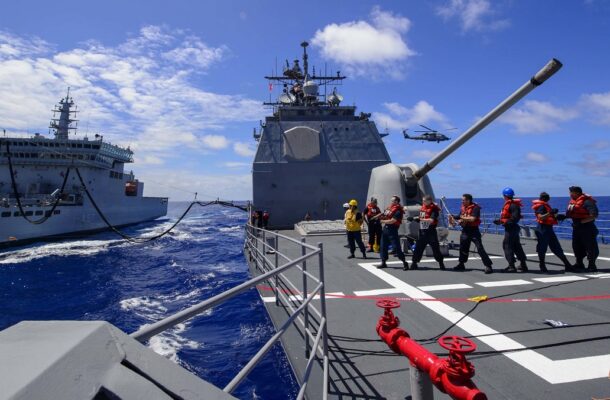Operation Malabar

The recent iteration of the Malabar military exercises is an illustration of the growing military interoperability, mutual trust, and coordinated response of the Quad countries. More are needed to maintain stability and security in the Indo-Pacific, threatened increasingly by China’s military assertiveness.
The Indian and US navies conducted the first Malabar exercise bilaterally in 1992. Australia participated in the first Quad Malabar exercise in 2007 along with Japan, India and the United States. Following China’s objections to the first Quad Malabar exercise, Australia withdrew from the drill, and rejoined in November 2020 bringing all four Quad nations to the exercise for the first time since 2007. Japan became a regular participant in the group in 2015.
Most of the drills in the past have occurred in the Indian Ocean off the coast of India. But the location of the 2023 Malabar exercise adjacent to Australian waters and Australia’s participation are crucial.
Through cooperative training and mutual understanding, the exercise not only demonstrates the four nation’s common commitment to maritime security and regional stability, but also their capacity to work as an integrated force. This was demonstrated by the over 200 hundred participants involved in the Malabar drills, which included advanced anti-submarine, air-defence, and gunnery drills as well as aviation and communication operations.
China’s threat brings the Quad together
China’s growing assertiveness in the region has accelerated the Quad nations’ bilateral and quadrilateral ties. These are now most evident in the deepening of defence partnerships, such as refueling arrangements and expanded joint military exercises.
The recent Australia-United States Ministerial Consultations (AUSMIN), Joint Australia-US Military Exercise, and the 2023 Talisman Sabre exercise, which involved navies from 13 nations’, including Australia, the US, Japan, and South Korea, further strengthen and open the door for actual cooperation in Quad defence.
It is possible that in the future nations like Japan and India, which have already been invited to join US-Australia force posture initiatives, will send aircraft to take part in joint maritime monitoring operations from Australian air bases.
In the Quad, India, which is seen as being at the heart of the Indo-Pacific idea, has become a key participant in the shifting balance of power. Unlike during the Cold War, India has moved closer toward the Western liberal order and is now prepared to engage with other Quad states more deeply. There has been a remarkable improvement in its relations with the US, which is currently being pursued through the Comprehensive Global and Strategic Partnership.
The US and India have more recently elevated ties to a “Next Generation Partnership,” focusing on enhancing collaboration in the fields artificial intelligence, critical technology, trade, and transferring emerging technologies. However, what stands out is how India has grown and improved its strategic partnership with Japan and Australia, particularly on the fronts of security and defence.
In this context, it is noteworthy that Australia and India have also bolstered defence cooperation through visits by maritime patrol aircraft for coordinated patrols at one another’s naval air stations, and cooperative exercises as part of an improved maritime surveillance strategy.
The Malabar exercise was followed by AUSINDEX, which took place from August 22 to 24, and featured the fifth Scorpene or Kalvari-class diesel-electric submarine, participating in various exercises with Royal Australian Navy (RAN) units off the west coast of Australia. This exercise demonstrates the Indian Navy’s capacity and professional know-how to conduct sustained submarine operations at great distances from the base port for extended periods of time.
These joint military exercises have reinforced and further united the Quad, which has become for many central to ideas about stability in the Indo-Pacific. This is apparent in the standardisation of information sharing procedures, the opening of additional military installations for maintenance and sustainment requirements, and operational coordination.
At the bilateral and trilateral levels, the Quad states’ intricate and robust defence ties serve as evidence of the Quad’s growing power and strategic relevance in balancing China’s assertiveness in the Indo-Pacific. The 2023 Malabar exercise sends a statement that all four nations are committed to and capable of upholding the core values of sustaining a free, open, and safe Indo-Pacific.
Dr Ashok Sharma is visiting fellow at UNSW Canberra at the Australian Defence Force Academy and adjunct associate professor at the Institute for Governance and Policy Analysis at the University of Canberra.











